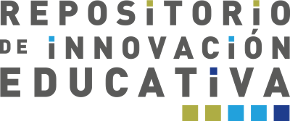Por favor, use este identificador para citar o enlazar este ítem:
https://www.innovacioneducativa.unam.mx:8443/jspui/handle/123456789/4244Registro completo de metadatos
| Campo DC | Valor | Lengua/Idioma |
|---|---|---|
| dc.contributor.author | Mora Márquez, Manuel | |
| dc.contributor.author | Arroyo Palma, Vicente | |
| dc.contributor.author | Leal Fernández, Ángel | |
| dc.date.accessioned | 2020-03-02T16:05:56Z | - |
| dc.date.available | 2020-03-02T16:05:56Z | - |
| dc.date.created | 2018-06 | |
| dc.date.issued | 2018 | |
| dc.identifier.issn | 1850-9959 | |
| dc.identifier.uri | http://132.248.161.133:8080/jspui/handle/123456789/4244 | - |
| dc.description.abstract | The present work will deal with an educational innovation, aimed at the second cycle of Primary Education, which deals with the application of an ICT resource (Information and communication technology) based on gamification, such as Socrative, for the delivery of the Unit Didactics of "Living beings". The use of this application allows the teacher to work from the pedagogical model called flipped classroom, which combines work outside the classroom with real work in it, optimizing the time of the teaching-learning process, from a more dynamic and motivating approach. The theoretical part of the article will deal with aspects that relate how new technologies have influenced Education, as well as the advantages of their use in the teaching-learning process (T-L). In this way, the approach of school 2.0 and the characteristics and benefits of the use of new technologies in the classroom will be discussed, to finish commenting on what the Socrative application is, how it works and what revenues can be derived from its use in the classroom. Also, in this project of educational innovation have been raised a series of work sessions where students will use the Socrative tool and acquire or reinforce concepts related to living beings, didactic unit chosen to virtualize it on this platform. The use of this ICT tool has repercussions in two areas: the teaching process developed in the classroom; On the one hand, it allows students to acquire a more meaningful learning, working in a game environment; on the other hand, it allows the teacher to instantly assess the students and obtain graphs to see the weaknesses, in the concepts worked on, of each student in particular, improving the T-L process. | |
| dc.language | es | |
| dc.relation.ispartof | SciELO Argentina | |
| dc.rights | Derechos reservados | |
| dc.source | Revista Iberoamericana de Tecnología en Educación y Educación en Tecnología, (21):24-31 | |
| dc.title | Socrative en el aula de Educación Primaria: propuesta didáctica para trabajar los seres vivos | |
| dc.type | Articulo | |
| dcterms.bibliographicCitation | Mora Márquez, Manuel; Arroyo Palma, Vicente y Leal Fernández, Ángel (2018). Socrative en el aula de Educación Primaria: propuesta didáctica para trabajar los seres vivos.Revista Iberoamericana de Tecnología en Educación y Educación en Tecnología, (21):24-31. Disponible en: http://www.scielo.org.ar/scielo.php?script=sci_arttext&pid=S1850-99592018000100004&lang=es | |
| dc.identifier.sinne | SCI167 | |
| dc.identifier.url | http://www.scielo.org.ar/pdf/ritet/n21/n21a04.pdf | |
| dc.subject.keywords | Alfabetización digital; | |
| dc.subject.keywords | Aula invertida; | |
| dc.subject.keywords | Recursos TIC; | |
| Aparece en las colecciones: | Artículos científicos y académicos | |
Ficheros en este ítem:
No hay ficheros asociados a este ítem.
Los ítems de DSpace están protegidos por copyright, con todos los derechos reservados, a menos que se indique lo contrario.


